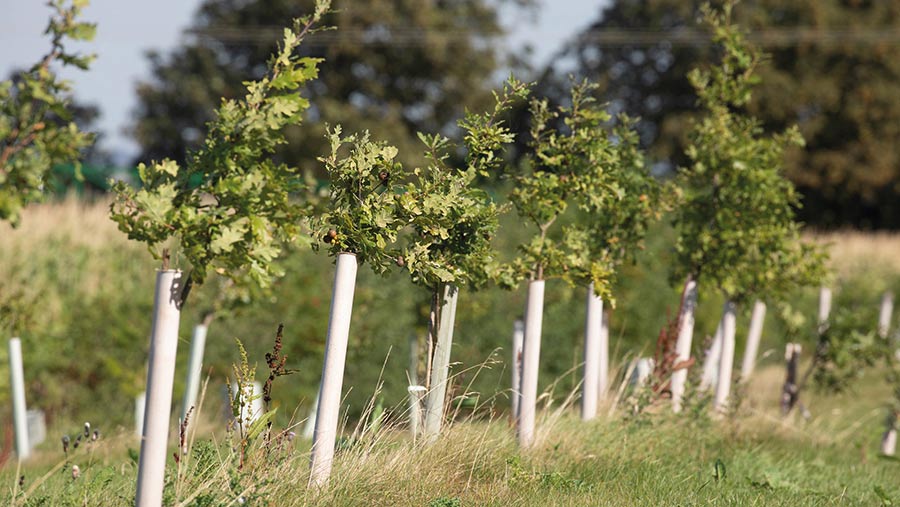Productive farms being sold to investors for planting trees
 © Tim Scrivener
© Tim Scrivener UK governments are being warned against incentivising woodland creation on productive farmland, or risk losing that land for future food production.
In Scotland, prime arable and livestock land is being bought by overseas investors supported by tax incentives.
Andrew Connon, of NFU Scotland (NFUS), told a Countryside COP webinar that he frequently received phone calls from despairing farmers and crofters about land being sold for forestry, including a recent acquisition of a 400ha block of arable land in Aberdeenshire by a Dutch investor.
See also: Trees can earn more than wheat under new planting scheme
In Fife, Mr Connon had visited three farms destined for forestry – one currently growing potatoes.
“Land agents are now approaching farmers to sell land not on the open market, but to a long list of investors looking to plant trees backed by foreign investment because of the perceived massive returns from carbon trading,” he said.
“Whole estates are being sold for planting, restricting opportunities for new and young tenant farmers.”
Wrong approach
While all UK governments have ambitious tree planting targets, creating woodland on productive farmland is wrong, insisted Lennart Nilson, a farmer and forester from Sweden – the most forested country in Europe.
“Once land is lost to planting, it is lost to agriculture forever,” he pointed out.
A blanket approach to planting, backed by city investors, was not the answer, said Mr Nilson, who urged an integrated approach in which woodland enhances existing farming practices.
He believed farmers should embrace those schemes, pointing out that trees were Sweden’s “green gold’’, used for making products such as wood pulp, and which provide a good income for farm businesses.
Mr Nilson, a member of the national board for the Federation of Swedish Farmers, LRF, said governments should incentivise market development for wood harvested from planting schemes, not just offer subsidies for planting trees.
“Investment is needed in infrastructure, in developing sawmills and the bioenergy sector,” he said.
Targets
In Wales, the government has a tree planting target of 43,000ha by 2030, but in the year to March 2020, just 80ha was planted and this was mostly on public land.
David Brown, deputy president of the Ulster Farmers’ Union, said resistance by farmers was likely driven by concern about handing over the use of that land, not for a generation, but for generations to come.
Governments are being asked to consider regulation to safeguard tenant farmers against pressure on land for tree planting.
Mr Connon also called for a robust impact assessment on what planting on individual estates will mean for communities, food production and farming opportunities.
